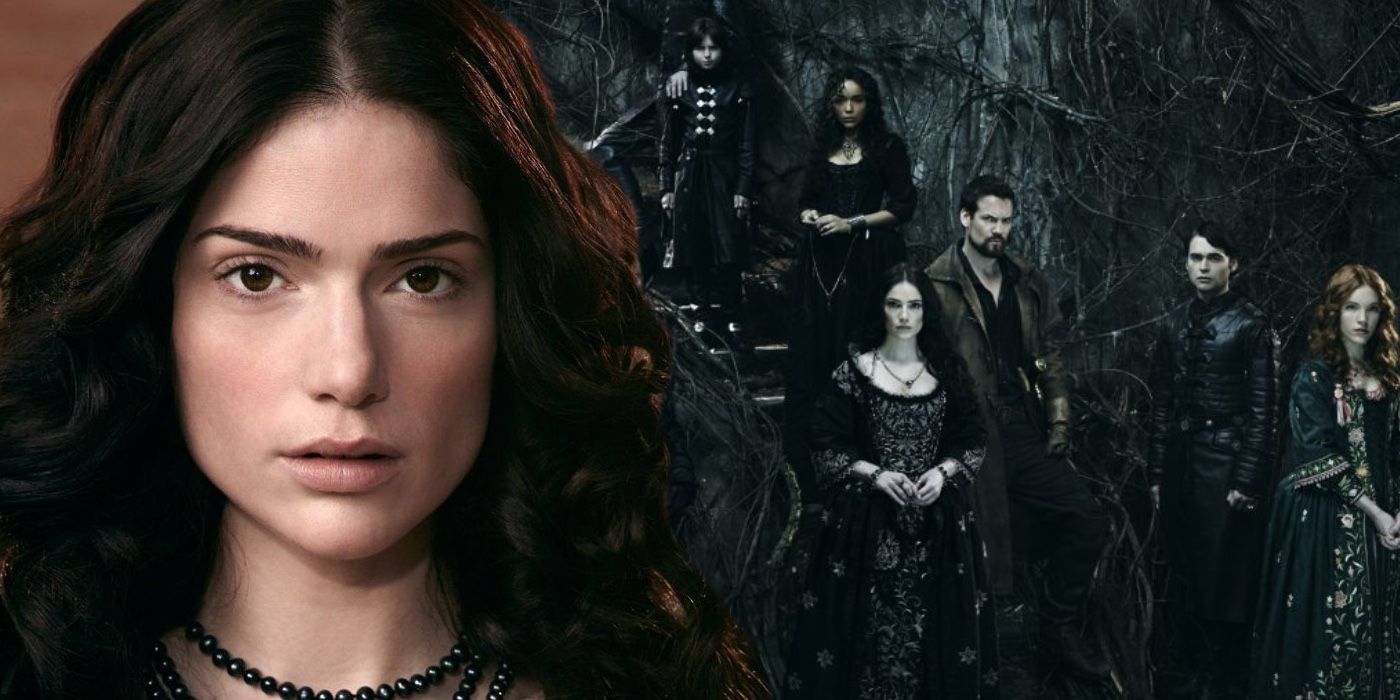Genre: Supernatural | Horror | Historical Drama
Created by: Brannon Braga & Adam Simon
Starring: Janet Montgomery, Shane West, Seth Gabel, Tamzin Merchant, Ashley Madekwe, Elise Eberle

Witch trials. Possession. Forbidden love. Warped religion. In a television landscape saturated with supernatural themes, WGN America's Salem dared to go where few others ventured—into the heart of America’s original horror story, and it did so with style, sensuality, and savagery.
Running for three seasons from 2014 to 2017, Salem is a bold, brutal reimagining of the infamous 17th-century witch trials. But this is no courtroom drama or cautionary tale. Here, the witches are real—and they’re the ones running the show.
Set in Puritan New England, Salem follows Mary Sibley (Janet Montgomery), a powerful and mysterious woman who secretly leads the coven of witches controlling the town behind the scenes. When her long-lost love John Alden (Shane West) returns from war, Mary’s carefully constructed web of lies and magic begins to unravel.
As religious hysteria consumes the town, Mary walks the tightrope between power and peril—manipulating the trials for her own dark ends while also wrestling with her fading humanity.
Each season escalates the conflict: from internal betrayal and demonic forces to full-scale war between witches, hunters, and hellish entities.
Janet Montgomery is the heart of the series—elegant, seductive, and tragic as Mary. She effortlessly shifts between villain and victim, making Mary one of the most complex anti-heroines in recent television. Shane West, as the soldier-turned-witch-hunter John Alden, grounds the show with stoic intensity.
Seth Gabel delivers a haunting, often unhinged performance as Cotton Mather, the tormented Puritan minister caught between faith and fear. Ashley Madekwe as Tituba and Elise Eberle as Mercy Lewis bring depth to characters often overlooked in history, portraying their transformation with disturbing elegance.
What sets Salem apart is its gothic aesthetic and unapologetically dark tone. The show is soaked in candlelight, blood, and ominous Latin chants. It's visually rich—with period-accurate costumes and lavish sets—but it doesn’t shy away from body horror, sensuality, and violence.
Its atmosphere is thick with dread, yet intoxicatingly beautiful. Think: Game of Thrones meets American Horror Story—with a touch of historical fiction.
The show's score, composed by Tyler Bates, blends eerie melodies and droning chants that perfectly complement the supernatural narrative.
Salem explores heavy themes: female power and persecution, religious corruption, patriarchy vs. rebellion, and the thin line between justice and vengeance. It flips the historical narrative—where the victims of hysteria were innocent—into a world where the accused are often guilty, but still sympathetic.
Its witches aren’t just villains; they’re survivors in a system designed to burn them. The show’s feminist undertone, combined with moral ambiguity, makes it feel surprisingly relevant even centuries after the actual trials.
-
Visually stunning with bold production design
-
Complex female lead with a morally gray arc
-
Rich world-building rooted in myth, religion, and history
-
Unpredictable, daring storytelling—especially in Seasons 1 & 2
-
Compelling commentary on fear, power, and oppression
-
The show’s graphic content may alienate sensitive viewers
-
Season 3, while climactic, rushed several arcs and character resolutions
-
At times, style overrides substance, with dramatic flair overshadowing depth
-
Some supporting characters feel underdeveloped or unevenly written
Salem is not a show for everyone—but for fans of dark fantasy, horror, and subversive historical fiction, it’s a wickedly underrated gem. With bold storytelling, a hypnotic atmosphere, and a central female character as complex as she is cursed, Salem turns the witch trials into a gothic opera of power, betrayal, and dark magic


